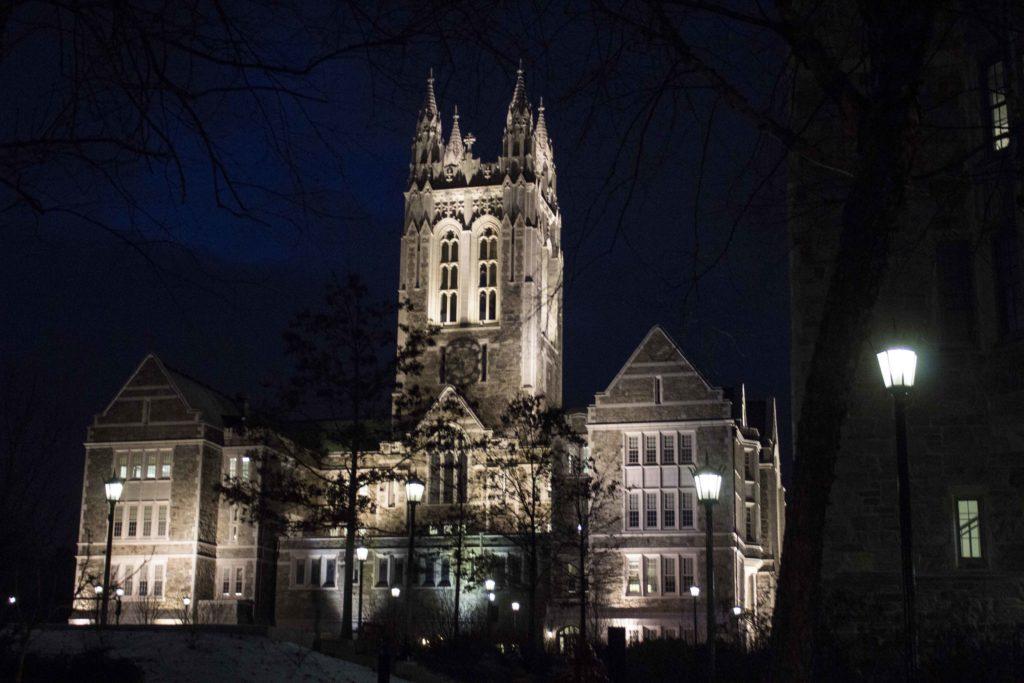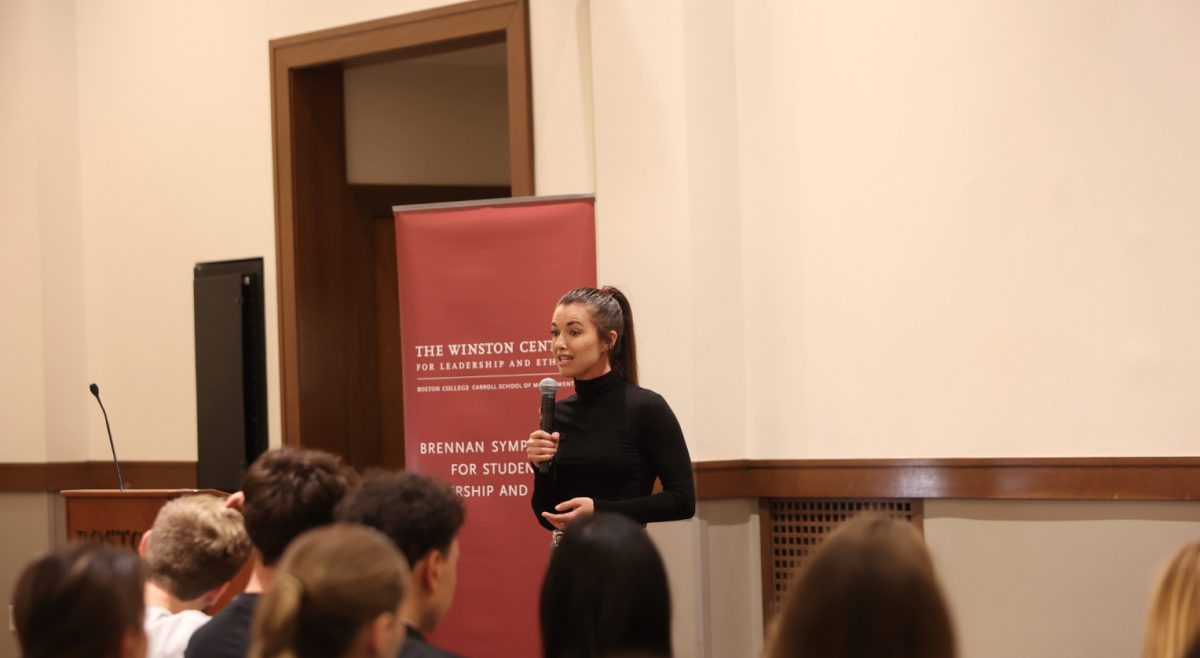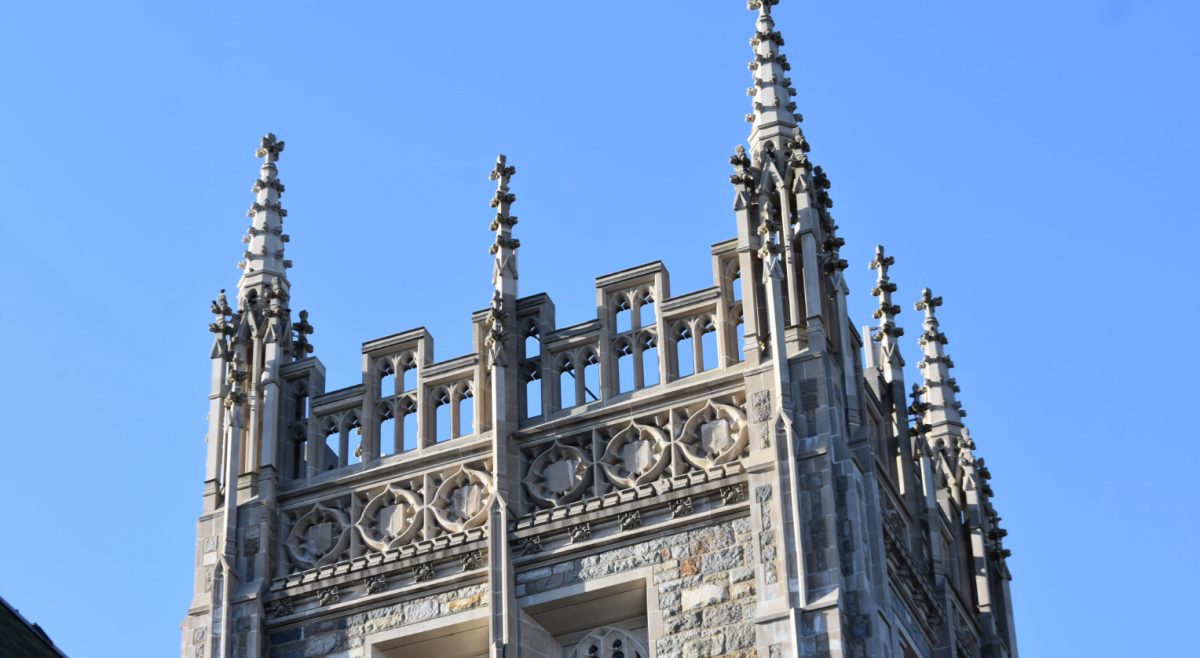The New York Times reported last Tuesday that Columbia University decided not to enter into bargaining with its graduate student employees union, intending instead to take the case to federal appeals court. The National Labor Relations Board (NLRB) ruled in 2016 that the Columbia graduate students could unionize. The ongoing case’s final result could have ripple effects on private universities around the country, including Boston College.
“This is going to establish a trend, a pattern, and a precedent,” Gary N. Chiason, a professor at Clark University, told The New York Times. “It’s a fight for more than just the graduate students at Columbia. It’s a fight for graduate students everywhere.”
Last Friday, according to a tweet from the Georgetown Alliance of Graduate Employees, Georgetown University “expressed its desire” to meet and come to an election agreement that does not consider a decision from the NLRB regarding graduate students’ employee status. This is a reversal of the University’s previous stance on recognizing the union. The BC Graduate Employees Union tweeted its support of Georgetown’s union, indicating that it will continue to ask BC to open a similar dialogue.
BC is currently following the same path as Columbia, and reiterated its commitment to seeing out the legal process.
“Boston College is awaiting the results of the appeal it filed with the NLRB prior to the union election,” University Spokesman Jack Dunn said in an email. “The university will not engage in negotiations until the appeals process has run its course.
“Our position remains that our graduate teaching and research assistants are best characterized as students—not employees—and that the longstanding, collegial relationship between faculty and students would be irreparably altered through graduate student unionization. We hope that the United Auto Workers Union will respect our right to have our appeal heard by the NLRB.
“Columbia University’s decision not to engage in bargaining with the union and to seek review of the status of student assistants in the federal appellate court is based on the same principle. As Columbia Provost John Coatsworth said last week, ‘The relationship of graduate students to the faculty that instruct them must not be reduced to ordinary terms of employment.’”
The union’s arguments against BC’s appeal remain unchanged, regardless of the events of the past week.
“Boston College’s appeal disrespects our democratic vote for unionization and disregards the spirit of Catholic social justice teachings,” BC’s union said in an emailed statement. “Boston College should follow the lead of Fordham and Georgetown in respecting the right of academic workers to choose unionization instead of attempting to get a Trump-appointed NLRB to negate the results of our fair election and issue a legal decision that contradicts those values. We continue to demand that Boston College respect our vote and do what is both morally and democratically correct: bargain with our union.”
On the other hand, the union sees the Georgetown developments as a victory for graduate student employees across the country. In its statement, the union emphasized that the Georgetown union’s collective action incited action from the its administration. BC’s union noted that Georgetown was pushed into “[respecting] their Jesuit mission,” which, in the opinion of both Georgetown and BC’s graduate unions, means that the rights of workers to unionize should be supported, just as Fordham University previously did.
The union won an election last September to bargain. In August, BC filed with the NLRB in an effort to stay the election and appealed the NLRB’s May 2017 decision granting the union an election. That appeal has not been ruled upon, but if the Columbia decision is overturned, that would directly affect BC’s appeal.
In the past, the union has directly cited the Columbia decision as the reason it should be recognized. In a tweet, the union expressed its support for its counterparts at Columbia, saying that “Private universities across America are using this stalling tactic to ignore democratically and legally elected unions.”
The union also claimed that private universities are relying on the Donald Trump administration appointees to the NLRB to “disregard us, our issues, and our power.”
The union has called multiple times for BC to rescind its appeal. The University issued a letter to the student body on Jan. 24 criticizing the actions of the union and asking for the appeal process to play out before it engages with the graduate students.
The union responded by holding a previously scheduled work-in the next day and then handing out fliers on Admitted Eagle Day the following Sunday. Union members continue to visit the offices of University President Rev. William P. Leahy, S.J., and University Provost and Dean of Faculties David Quigley asking for a meeting.
Featured Image by Kaitlin Meeks / Photo Editor



















